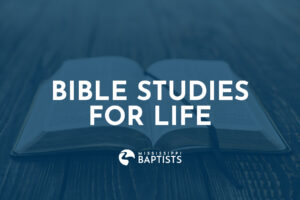Seeking Justice in an Unjust World • Obadiah 1-4, 10-17
By Paula Smith

I was asked a direct question. I swallowed hard before answering. I knew my answer was not in agreement with his. My teacher then instructed me to stand before the class and defend my answer. Everything I said that day was contradicted.
The date was January 16, 1973. I was in the 11th grade. We were studying the U.S. Supreme Court, and the BIG case they were deciding at that moment was Roe v. Wade, which handed women in the United States the so-called constitutional right to choose to have abortions.
One week after my classroom challenge, the Supreme Court announced its decision. Since that time, there have been an estimated 62,502,904 abortions.
That averages 2,362-plus abortions per day, or nine-plus abortions per hour, or one abortion every 37 seconds! (All.org). I have had very precious people close to me experience the desperation that abortion brings.
I don’t remember totally my defense nearly 50 years ago in that classroom, but I have since certainly studied the Lord’s view on this topic to be able to speak the truth in love and “in your hearts honor Christ the Lord as holy, always being prepared to make a defense to anyone who asks you for a reason for the hope that is in you; yet do it with gentleness and respect” (1 Peter 3:15 ESV).
We all realize that injustice happens and people experience oppression and even violence. How are we supposed to respond to the tragic and unjust things that happen in the lives of the unborn, the aged, the disabled, those of different ethnic backgrounds, and those of different racial backgrounds?
God shows us the answer to this question in His word. He sees the plight of the oppressed and acts on their behalf. He calls us to do the same.
Obadiah is a minor prophet, and the title of the shortest book in the Old Testament. This small book is a series of judgments against the people of Edom. Not only was Edom a neighbor of Israel residing on the other side of the Dead Sea, there were also family ties: Abraham and Sarah’s son, Isaac, along with his wife Rebekah and their two sons, Jacob and Esau.
The people of Israel descended from Jacob and the people of Edom descended from Esau. These brothers had a tense relationship from birth. The difficult relationship continued through the generations.
When Jerusalem was invaded and conquered by Babylon in 597 B.C., the people of Edom took advantage and plundered other Israelite cities and even killed Israelite refugees. It’s not hard to connect Edom’s arrogance, indifference, and oppression to our own culture’s attitude and treatment of the unborn, the aged, and those with disabilities.
We learn from Edom’s example that God will work His justice on behalf of the oppressed. We are His ambassadors and are also to do what we can to work for justice: “Speak up for those who have no voice, for the justice of all who are dispossessed. Speak up, judge righteously and defend the cause of the oppressed and needy” (Proverbs 31:8-9 ESV).
Jesus is our greatest example in what He said about Himself: “The Spirit of the Lord is on me, because He has anointed me to preach Good News to the poor. He has sent me to proclaim release to the captives and recovery of sight to the blind, to set free the oppressed, to proclaim the year of the Lord’s favor” (Luke 4:18-19 ESV).
Iva May, author of the book, Chronological Bible Teaching (chronologicalbibleteaching.com), explains how Judah’s situation and Obadiah’s prophecy apply to us even today:
— Standing idly by while others suffer (apathy) and then taking advantage of their suffering (exploitation) attracts the judgment of God.
— No nation is big or strong enough to escape the judgment of God.
— It matters to God how nations treat other nations.
— No nation is invulnerable to God. “The pride of your heart has deceived you, you who dwell in the clefts of the rock, whose habitation is high; you who say in your heart, ‘Who will bring me down to the ground? Though you ascend as high as the eagle, and though you set your nest among the stars, from there I will bring you down” (Obadiah 1:3-4).
— Apathy overflows from a contented and calloused heart, while entitlement and power drive exploitation.
Deliverance is only through the transforming power of the Gospel.
Smith is a member of Ridgecrest Church, Madison. She may be contacted at pgrace56@hotmail.com.




